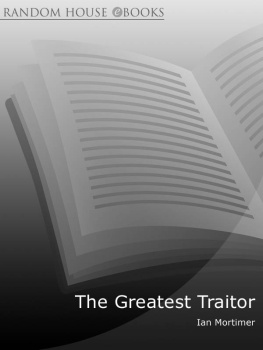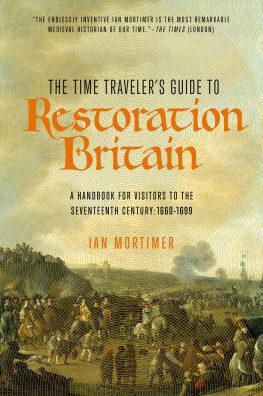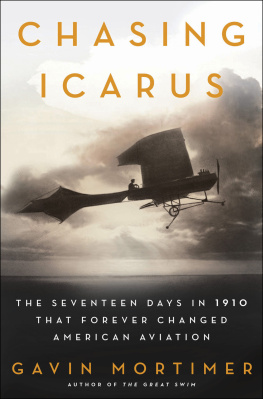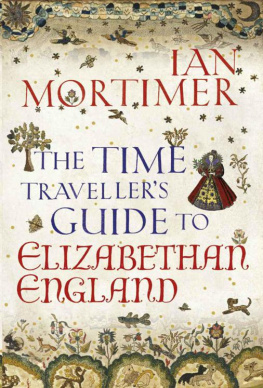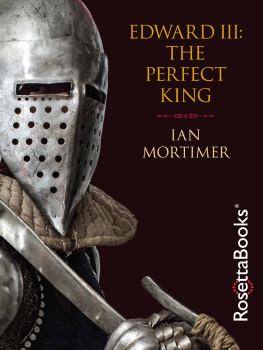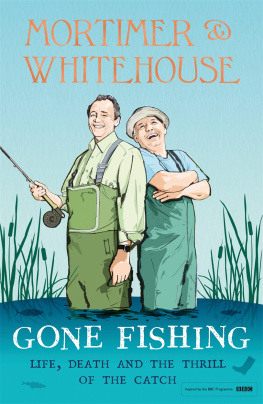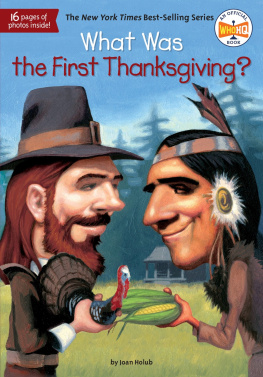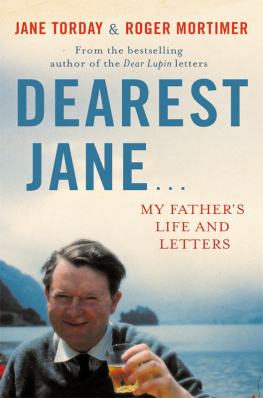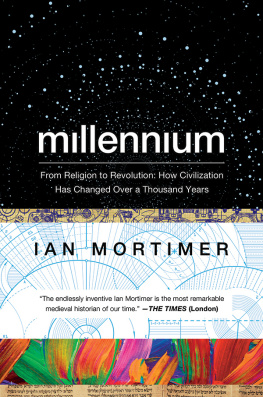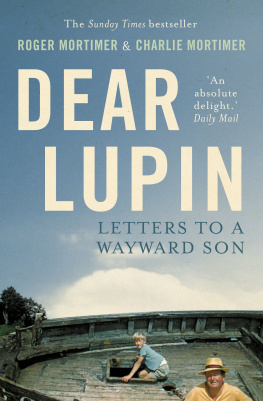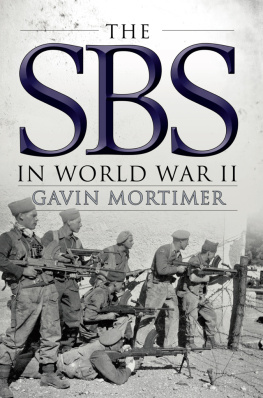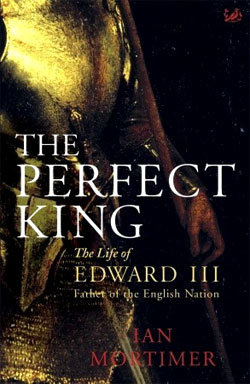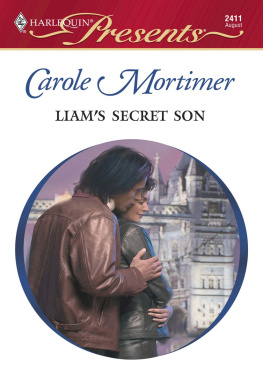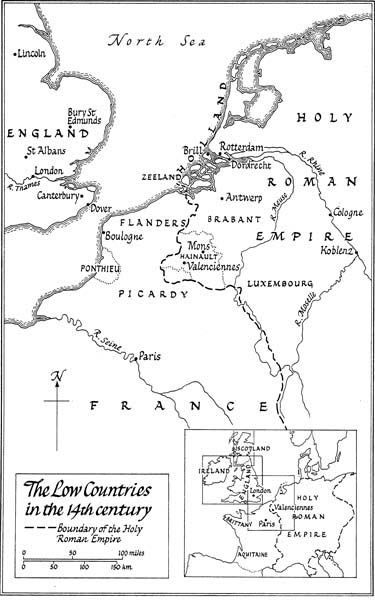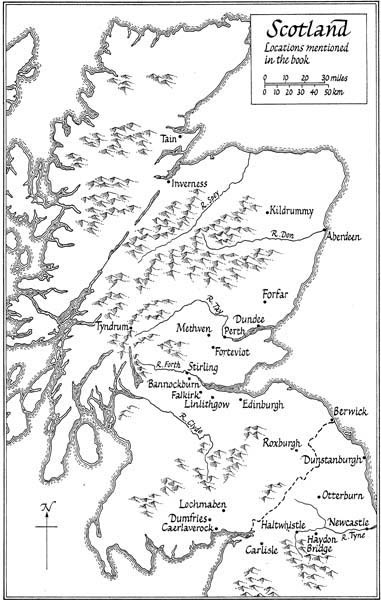CONTENTS
About the Author
Ian Mortimer has BA and PhD degrees in history from Exeter University and an MA in archive studies from University College London. He was elected a Fellow of the Royal Historical Society in 1998, and was awarded the Alexander Prize (2004) by the Royal Historical Society for his work on the social history of medicine. He is the author of four medieval biographies, The Greatest Traitor: The Life of Sir Roger Mortimer (2003), The Perfect King: The Life of Edward III (2006), The Fears of Henry IV: The Life of Englands Self-Made King (2007) and 1415: Henry Vs Year of Glory (2009) as well as the bestselling The Time Travellers Guide to Medieval England (2008). He lives with his wife and three children on the edge of Dartmoor.
ALSO BY IAN MORTIMER
The Perfect King: The Life of Edward III
The Fears of Henry IV: The Life Englands Self-Made King
The Time Travellers Guide to Medieval England
1415: Henry Vs Year of Glory
The Time Travellers Guide to Elizabethan England
ILLUSTRATIONS
(authors collection).
(courtesy of Brian Byron).
(courtesy of Dchas, The Heritage Service, Dublin).
(authors photograph).
(courtesy of the National Portrait Gallery, London).
(photograph by David Mortimer).
(photograph by David Mortimer).
(The Conway Library, Courtauld Institute of Art; photograph by F.H. Crossley).
(by permission of the British Library).
(The Conway Library, Courtauld Institute of Art; photograph by F.H. Crossley).
(Public Record Office, Image Library, DL27/93).
(reproduced from George Clark, Medieval Military Architecture in England, vol. 2, 1882).
(AD Hrault, G 1123, courtesy of Archives dpartementales Hrault, Photographic Services).
This book is gratefully dedicated to the memory of my father
JOHN STEPHEN MORTIMER
who took me to Wigmore Castle as a child,
told me not to climb on the walls (but let me do so anyway),
and always encouraged me to explore my fascination with the past.
IAN MORTIMER
The Greatest
Traitor
The Life of Sir Roger Mortimer, 1st Earl of
March, Ruler of England, 1327 1330
AUTHORS NOTE
THE EARLY FOURTEENTH century is a particularly difficult period for the systematic application of naming styles. Many of the individuals in this book were noblemen and knights whose hereditary surnames were originally derived from a placename, and thus included the prefix de as a part of the name itself. For example: Roger appears in contemporary documents as Roger de Mortemer (French) or Rogerus de Mortuo Mari (Latin), although his family had their castle at Mortemer (in Normandy) confiscated before 1066. Many of the lower classes, on the other hand, had not adopted hereditary surnames by 1300, and so documents which prefix their second names with de are in fact recording the places where they lived or were born. Historians have usually treated the former separately to the latter, maintaining the French de only for hereditary surnames and using of for geographical epithets: for example, Adam of Orleton is often described thus by historians because he was (rightly or wrongly) believed to have come from Orleton in Herefordshire. A similar surname/epithet problem attends names incorporating the element fitz (son of ). The Earls of Arundel continued to use the name FitzAlan throughout the period without changing it, while the Earls of Kildare continued to use fitz as meaning son of; hence Thomas FitzJohn was the son of John FitzThomas, Earl of Kildare, who was the son of Thomas FitzMaurice. A third complication arises in the fact that some characters have become better known by their surnames than their titles, e.g. Simon de Montfort (rather than the Earl of Leicester), while other names are better known in a French or hybrid form, for example Piers Gaveston (not Peter de Gaveston or Gabaston). A last complication is that most standard reference works drop the prefix de (but not fitz) when listing titles.
As a result of all this complexity, inconsistency and confusion I have chosen to adopt the following naming system. Firstly, I have normally used the best-known version of the name of a well-known historical personality. Thus I refer to Roger as Roger Mortimer not Roger de Mortemer, Isabella not Isabelle, etc. Secondly, as de-prefixed surnames in this book are normally hereditary, I have tended to retain de (rather than of), only making exceptions for those individuals for whom de would be inappropriate, such as earls and counts (e.g. Thomas of Lancaster, Donald of Mar, William of Hainault), members of the royal family (e.g. Edmund of Woodstock), and those who appear under their first name in the old DNB (e.g. Adam of Orleton). In a few cases, such as Hugh Audley, the inconsistently applied prefix has been dropped from the surname. Thirdly, all Fitz names have been written as one word, whether hereditary or not. Fourthly, where baronial titles based on surnames have been used for example, Lord Badlesmere the de prefix has been dropped, following the practice of the Complete Peerage. Where a nobleman is referred to by a single name, it is normally his unprefixed title which is intended (e.g. Gloucester for Gilbert de Clare, Earl of Gloucester, or Badlesmere for Sir Bartholomew de Badlesmere, Lord Badlesmere). Where a noblemans family is mentioned, however, the full prefixed surname is used.
Storys to rede ar delitabill,
Suppos that they be nocht bot fabill;
Than suld storys that suthfast wer,
And thai war said on gud maner,
hawe doubill plesance in heryng.
The fyrst plesance is the carpyng,
And the tothir the suthfastnes.
(The stories we read delight us,
but suppose they be nothing but fable?
Then should stories which are true
and which are masterfully told
have double the pleasure in being heard.
The first pleasure lies in the telling,
and the other in the truth.)
John Barbour (ed. Walter Skeat), The Bruce, part 1,
Early English Text Society extra series XI (1870), p. 1.
INTRODUCTION
ON 1 AUGUST 1323 a thirty-six-year-old man lay in a chamber high up within the Tower of London. He was a nobleman, the lord of Wigmore, Radnor and Ludlow castles, and the lord of many manors throughout England. He held half the county of Meath and the castle and lordship of Trim in Ireland, and had twice been the governor of that country. He was one of the most experienced battle leaders alive, having fought campaigns in England, Scotland, Wales and Ireland. But he was also King Edward IIs prisoner, sentenced to life imprisonment for having taken part in a rebellion two years earlier.

